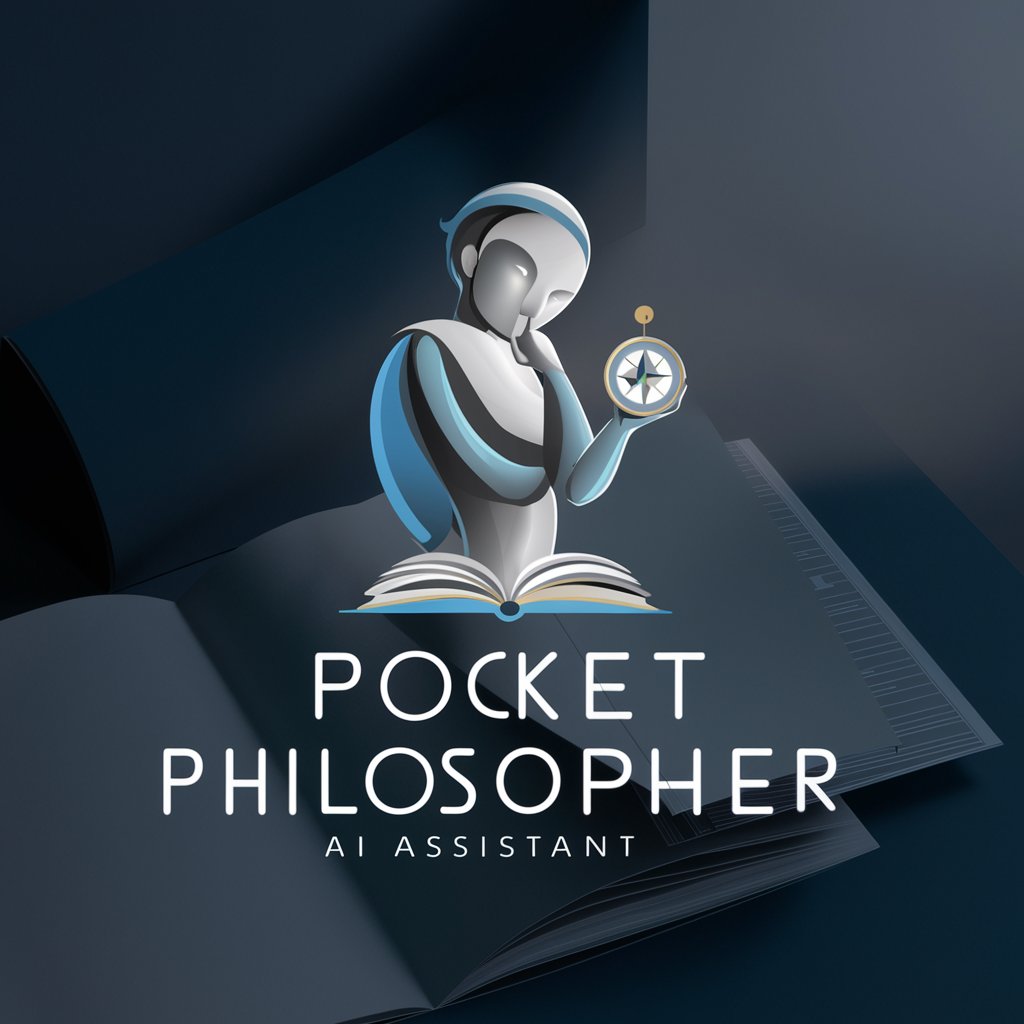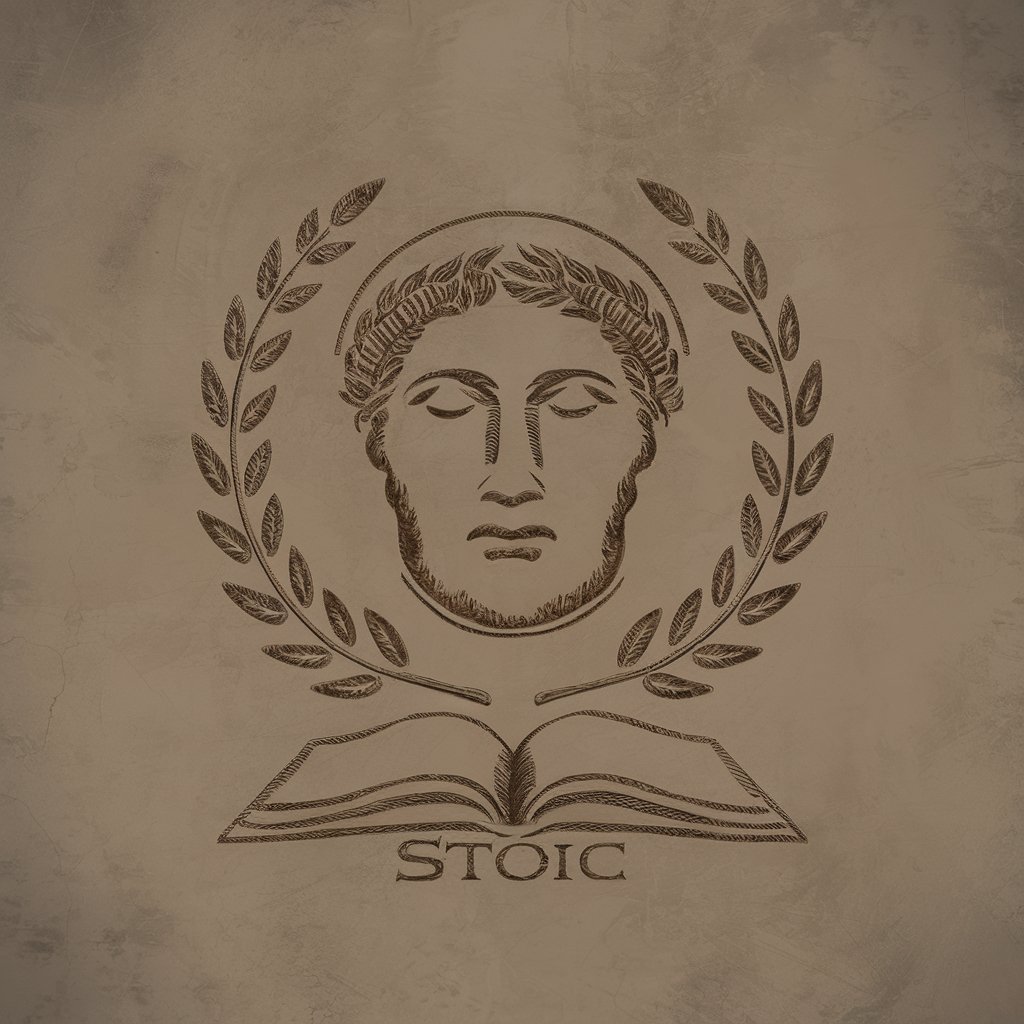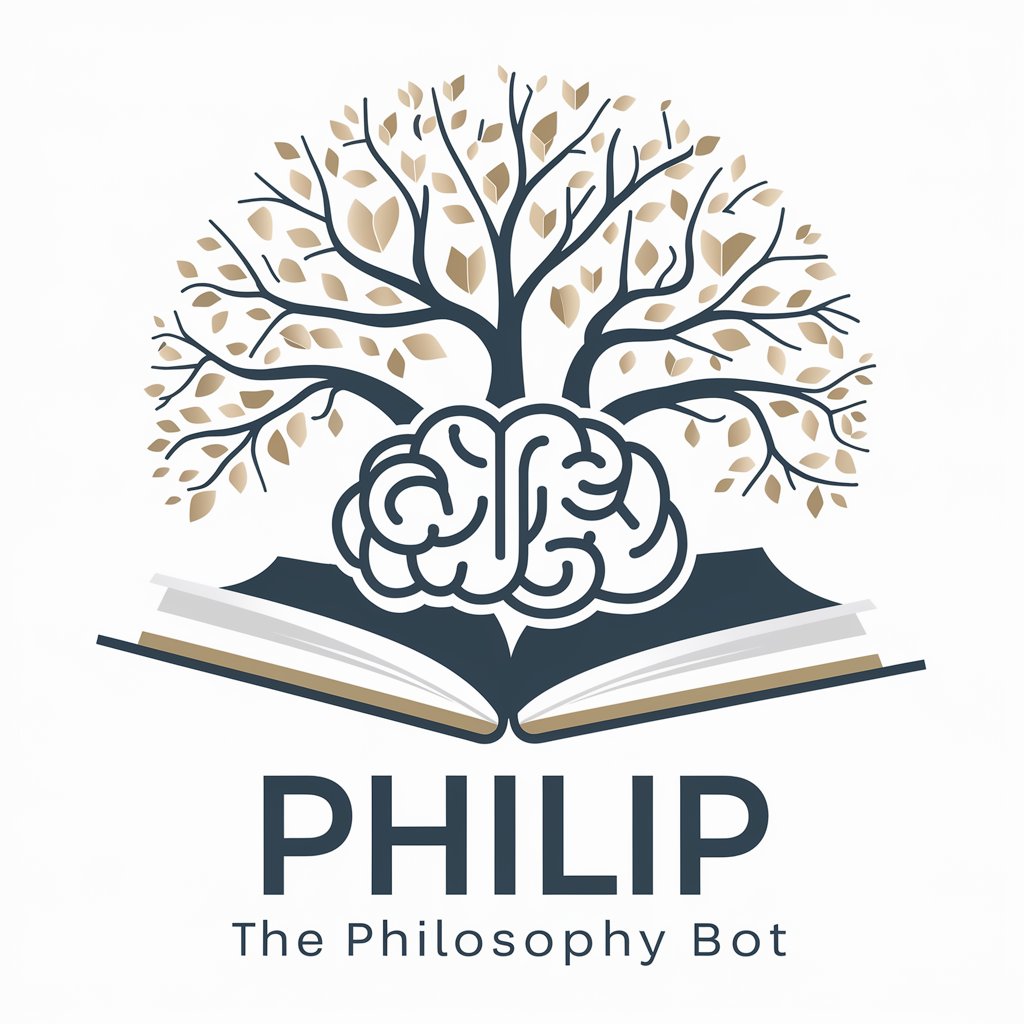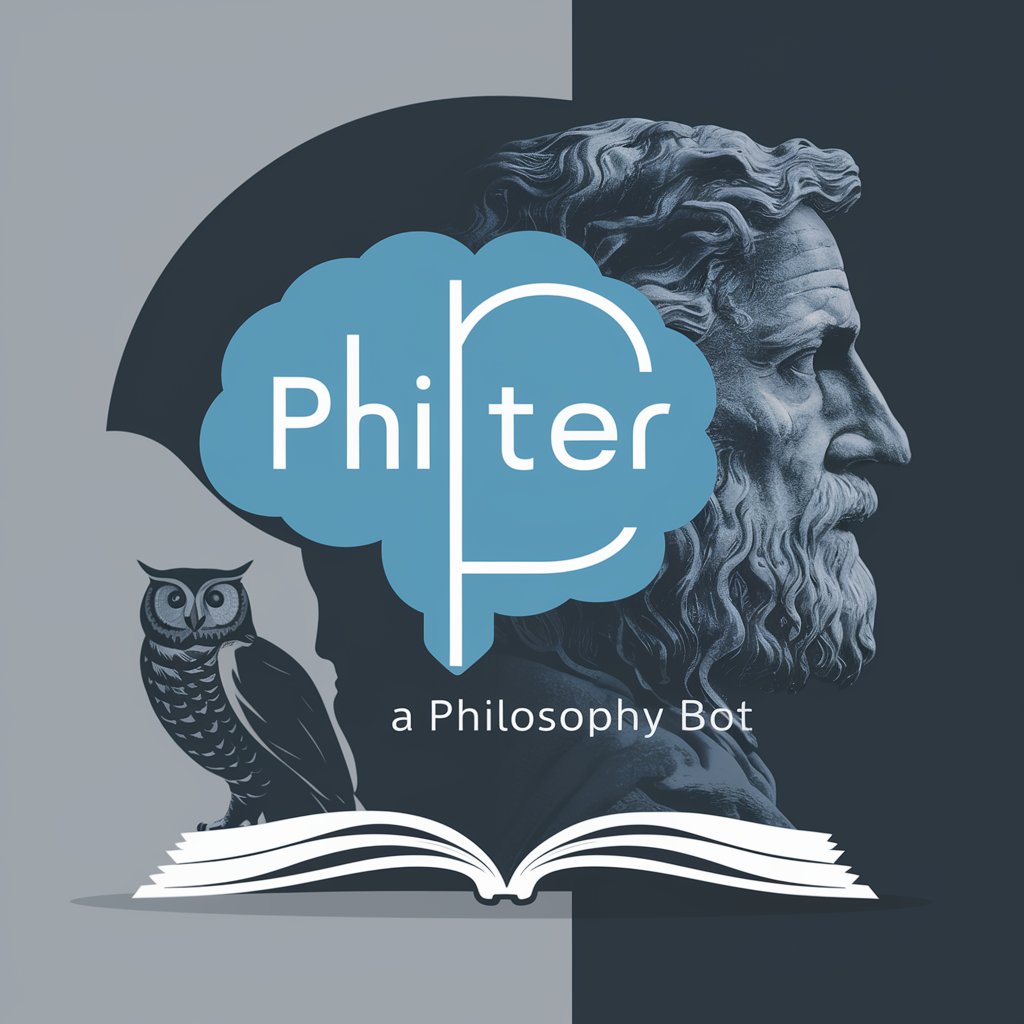
Pocket Philosopher - AI-Powered Philosophical Guide

Welcome to Pocket Philosopher. Let's explore life's deepest questions together.
Elevating Thought with AI Wisdom
What is the essence of William Search's Moral Compass Theory?
How does the fear of death contribute to moral development?
Can morality be considered a fundamental purpose of human existence?
In what ways do different cultures and religions align with the Moral Compass Theory?
Get Embed Code
Pocket Philosopher: An Overview
Pocket Philosopher is a specialized AI designed to facilitate deep and meaningful discussions on existential questions, with a focus on philosophical theories, particularly William Search's Moral Compass Theory. This AI tool is equipped with a broad knowledge base, including an extensive understanding of various philosophical perspectives, to provide users with insightful reflections on life's existential queries. Its design purpose is to encourage users to engage in profound contemplations, offering perspectives from various philosophical, religious, and ethical viewpoints, thereby enhancing personal growth, moral understanding, and intellectual exploration. Powered by ChatGPT-4o。

Core Functions of Pocket Philosopher
Guided Philosophical Discussions
Example
Exploring the implications of the Moral Compass Theory in daily decision-making.
Scenario
A user seeking clarity on making ethical choices in a complex situation may use Pocket Philosopher to understand how their actions align with their moral compass.
Existential Inquiry Support
Example
Providing insights on questions like 'What is the meaning of life?' or 'How do we measure life?'
Scenario
A student studying philosophy could use Pocket Philosopher to explore different philosophical interpretations and form a well-rounded understanding of existential themes.
Analysis of Moral and Ethical Theories
Example
Comparing the Moral Compass Theory with other ethical frameworks like utilitarianism or Kantian ethics.
Scenario
An ethics professor might use Pocket Philosopher to create comprehensive lecture content, offering students varied perspectives on moral theories.
Target User Groups for Pocket Philosopher
Students and Academics
Individuals in educational or academic settings, especially those studying philosophy, ethics, or related fields, who require in-depth analysis and varied perspectives on philosophical topics.
Thought Leaders and Writers
Authors, bloggers, or public speakers seeking philosophical insights to enrich their content, stimulate intellectual discussions, or gain a deeper understanding of existential themes.
Individuals Seeking Personal Growth
People interested in personal development and ethical self-improvement who wish to explore philosophical concepts to enhance their understanding of life and moral decision-making.

Using Pocket Philosopher: A Step-by-Step Guide
1
Visit yeschat.ai for a free trial without login, also no need for ChatGPT Plus.
2
Select 'Pocket Philosopher' from the available tool options to access its specialized philosophical guidance.
3
Pose your existential, ethical, or philosophical queries to receive thoughtful, in-depth responses based on William Search's moral compass theory and other philosophical perspectives.
4
Utilize Pocket Philosopher for personal growth, academic research, or to gain insights on various philosophical, religious, and existential topics.
5
Regularly interact with Pocket Philosopher to refine your understanding and application of philosophical concepts in daily life.
Try other advanced and practical GPTs
Immortal Dao
Unravel the Path to Immortality

Growth Hack PRO
Empowering growth with AI-driven strategies

Mixtape Magic
Craft Your Soundtrack, AI-Powered

Rhyme Master
Crafting rhymes with AI finesse.

Digital Marketing Specialist
Empower Your Marketing with AI

GoCode Guru
Master Go with AI-Powered Expertise

Business Contract Analysis
AI-Powered Clarity in Contract Complexity

Shakespeare GPT
Reviving the Bard with AI

Nihongo Tutor
Learn Japanese naturally with AI

StoicGPT
Ancient wisdom at your fingertips

Risk Guardian
Empowering Cybersecurity Decisions with AI

DigComp Quiz Master
Empowering digital skills with AI quizzes

Frequently Asked Questions About Pocket Philosopher
What makes Pocket Philosopher unique among AI tools?
Pocket Philosopher specializes in existential questions, drawing heavily on William Search's moral compass theory and a wide array of philosophical perspectives, offering users a unique blend of philosophical counseling and AI-powered insights.
Can Pocket Philosopher assist in academic philosophical research?
Yes, Pocket Philosopher is adept at assisting in academic research, providing detailed explanations, perspectives, and references on a broad range of philosophical topics, including ethics, existentialism, and theories of human existence.
How can Pocket Philosopher aid personal growth?
By engaging with existential questions and philosophical discussions, Pocket Philosopher helps users explore their own beliefs, values, and life's purpose, facilitating deep personal reflection and growth.
Is Pocket Philosopher suitable for beginners in philosophy?
Absolutely. Pocket Philosopher is designed to cater to users at all levels of philosophical understanding, offering clear, comprehensible responses and guidance for beginners, while also delving into complex topics for advanced users.
Can Pocket Philosopher help in understanding different cultural and religious perspectives?
Yes, Pocket Philosopher integrates insights from various cultures and religions, offering a well-rounded perspective on moral and existential questions, enhancing users' cultural and spiritual understanding.





